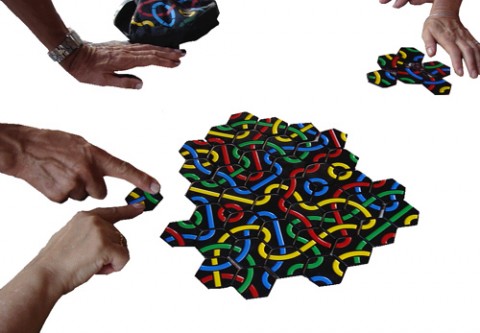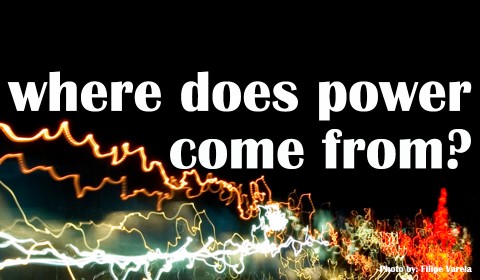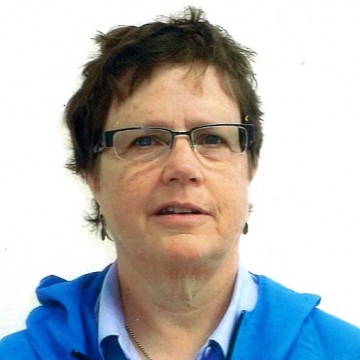Blog
May 18, 2010

|Photo by laurenatclemson|http://www.flickr.com/photos/laurenmanning/2319032882/in/photostream|
A couple of weeks ago, during a training with early childhood advocates from around Connecticut, an interesting conversation ensued about vision. This was prompted by one participant’s comment that in this day and age, “There is no such thing as vision. There is no such thing as magic or miracles. People are cynical. People just don’t respond to vision anymore.” There was some immediate push back to this comment, and also some acknowledgment that vision may not be what it used to be, thinking of the old standards a la MLK and JFK.
Read More
May 14, 2010

|Photo by Ben Heine|http://www.flickr.com/photos/benheine/3881905581|
“A bright green future begins when each of us, today, decides to live as if that future were already here.”
– Alex Steffen, World Changing
Many of us here at IISC were taken with Peter Block’s book, Community: The Structure of Belonging, and you have no doubt heard it referenced in other posts or ensuing conversations on our blog. At this point our couple of office copies have been through many hands, bookmarked, underlined, and are readily referenced in work with partners and clients. One of the most profound parts of the book for me is where Block makes the point that we often think of the future as this far off thing, and subsequently make our meetings and community gatherings all about planning for that eventuality. What we miss is the opportunity to manifest a piece of that future now.
Read More
May 13, 2010

|Photo by Flowery *L*u*z*a*|http://www.flickr.com/photos/luchilu/747345256|
For the past few weeks, in a series of Thursday posts, we’ve addressed what it takes to tap the full potential of collaboration to shift to more environmentally sustainable ways of living and working. We’ve explored the importance of bringing diverse systemic perspectives together and developing shared identities and values as a way of achieving greater ecological intelligence and commitment. And as a friend of mine says, you can bring great groups together with the best of intentions and still end up with nothing or a mess. So what else can we put into place to help ensure we reach the sustainable ends we seek?
Read More
May 12, 2010

|Photo by A Perfect Vacuum|http://www.flickr.com/photos/jamesmuckian/515141082/sizes/m/|
This is the fourth in a series of postings about power and group facilitation processes, based on research from a few years ago. Today’s post is about how power is built into group narrative.
As I was doing research, I came across a batch of work about narrative theory by Sara Cobb and Janet Rifkin (cited below). Cobb and Rifkin researched how a narrative is constructed and what impact it has on the ultimate outcome of mediation sessions. They found that the first story told tends to be privileged and “colonize” later stories told.? By framing the discussion to come, this initial story tends to narrow and define the direction of the ensuing conversation. Later versions are generally tied to the initial story and thus are unable to be fully developed. And the outcome of mediation is generally tied to the initial story. Read More
May 11, 2010

David Brooks is making me think again. This time he is pointing to the limits of policy. Yes, he’s throwing stones at what is a sacred cow for change makers of all stripes – and I’m glad he is doing it. As happens too often with Brooks, he gets dangerously close to cultural determinism, but it is by walking that line that he can manage to highlight some very important empirical patterns. Read More
May 7, 2010
(A re-posting from June 2009)
One of the blessings I’ve experienced in our social change work as process experts and professional facilitators is the exposure we get to have to various fields of social change work. Since last October, my colleague Andrea and I have had the pleasure of consulting with an amazing collaborative of stakeholders, the Springfield Health Equity Initiative, who have determined to build a plan to reduce the incidence of diabetes in the black and brown neighborhoods in the city of Springfield, MA. Even more boldly, these dedicated and thoughtful leaders have also chosen to take up an analysis for their work that incorporates how systemic, government sanctioned, racial discrimination has played a direct role in creating the egregious disparities in health outcomes we see today among black and brown folk in the U.S., and regardless of class. Read More
May 6, 2010

|Photo by jordigraells|http://www.flickr.com/photos/jordigraells/2097554407|
“In dealing with complex problems, our ability may be bounded, but our diversity is not. Diversity – be it based on identity, training or vocation — may be our best asset.”
– Scott E. Page
In last Thursday’s post, we talked about the importance of developing a shared identity among stakeholders, and doing this early in a collaborative process, as a way of developing greater commitment to collective interests as well as bolstering the inclination to think about and act in accordance with more long-term risks and benefits. Clearly more needs to be said about the WHO that is engaged in this work and how this aligns with sustainability.
Read More
May 5, 2010

More about power and group processes. There have been a mountain of books written about the “bases of power” and the “types of power”. I’ve done some work to try to boil it down – and find thinking about this very useful in moving forward the conversation about how to address power issues in group processes.
Read More
May 4, 2010

|Photo by TeresaM3Kids|http://www.flickr.com/photos/teresam525/3530463356/|

|Photo by Johan J.Ingles-Le Nobel|http://www.flickr.com/photos/43147325@N08/4370125469/|
I’m a big fan of Kevin Kelly. His latest blog post reflects on what he calls “Two Kinds of Generativity” and it has me thinking about the next phase of movement. Kelly describes the evolutionary process of an innovation. He speaks of the first stage as one that is “vague, incomplete and open to change.” This first stage is appealing to the early adapters, “tinkerers, nerds, fans, and hacks who will make it do all kinds of things no one had thought of.” Read More
April 30, 2010
(A repost from April 2009)
I suppose it’s the overlooked companion of Change: Anticipation. It’s the silent provocateur that causes us to peer into the distance, squint past the horizon, turn the proverbial corner, stand on the brink, gear up for the jump off, and on and on. It is the automatic reflex within us that kicks into gear once we have a cognitive or instinctual knowing, that things are about to…shift.
That Change is afoot, we well know: Sam Cooke crooned it; Grandma prayed for it; Obama touted it; analysts predicted it; planners plan for it. My thoughts here turn to unpacking a hunch that what we are missing out on, quite unbeknownst to us, is the wisdom, creativity and knowledge available to ( through?) us/clients in that (anticipatory space of) calm before the storm (of Change). Scharmer’s naming and exploration of pre-sencing gets at it; Gibran’s queries around testing for “readiness” in groups is along the same lines; prototyping as a way into solving complex problems is yet another expression within this same sphere. Rather than an anxious, fear-based, controlling energy wherein we brace for change, I’m suggesting that there is a playful, curious, self- and Other-awareness we can decide to adopt that enables us to learn from Change, and how to navigate it, perhaps even before it occurs.
Read More
April 29, 2010

|Photo by Peter Forbes|http://www.wholecommunities.org/programs/|
“To work at this work alone is to fail.”
-Wendell Berry
Picking up from where I left off last Thursday . . . How might collaboration be a key to making the sustainability shift? At its best, collaboration is the act of modeling complex systems at work, and with awareness and intention comes critical adaptive capacity. The goal is to achieve collective and distributed intelligence that can respond in timely ways to threats to sustainability (stressed ecosystems, injustice, etc.) and that can be proactive in creating optimal conditions for future generations to meet their needs. That’s the ideal, right? How do we get there?
Read More
April 28, 2010

|Photo by Carina Ice|http://www.flickr.com/photos/carinaice/4232182696/|
One of the first questions you might ask when thinking about looking at power dynamics in group facilitation is what IS power anyway? This seemingly simple question, of course, is not really all so simple after all. What do you think? How would you describe power?
When I first started trying to answer this question for myself, I found that I was overwhelmed with material -? literally hundreds and hundreds of books about what power is, where it comes from, how it operates, etc.? For many, a definition of power has to do with the ability to force something to do something they wouldn’t have done otherwise – a coercive definition of power.? Feminist psychologist Jean Baker Miller described power as “the capacity to produce a change.” Others (and in fact, our common terminology) talks about power as a “thing” that can be divided, shared, owned, and transferred. Read More











